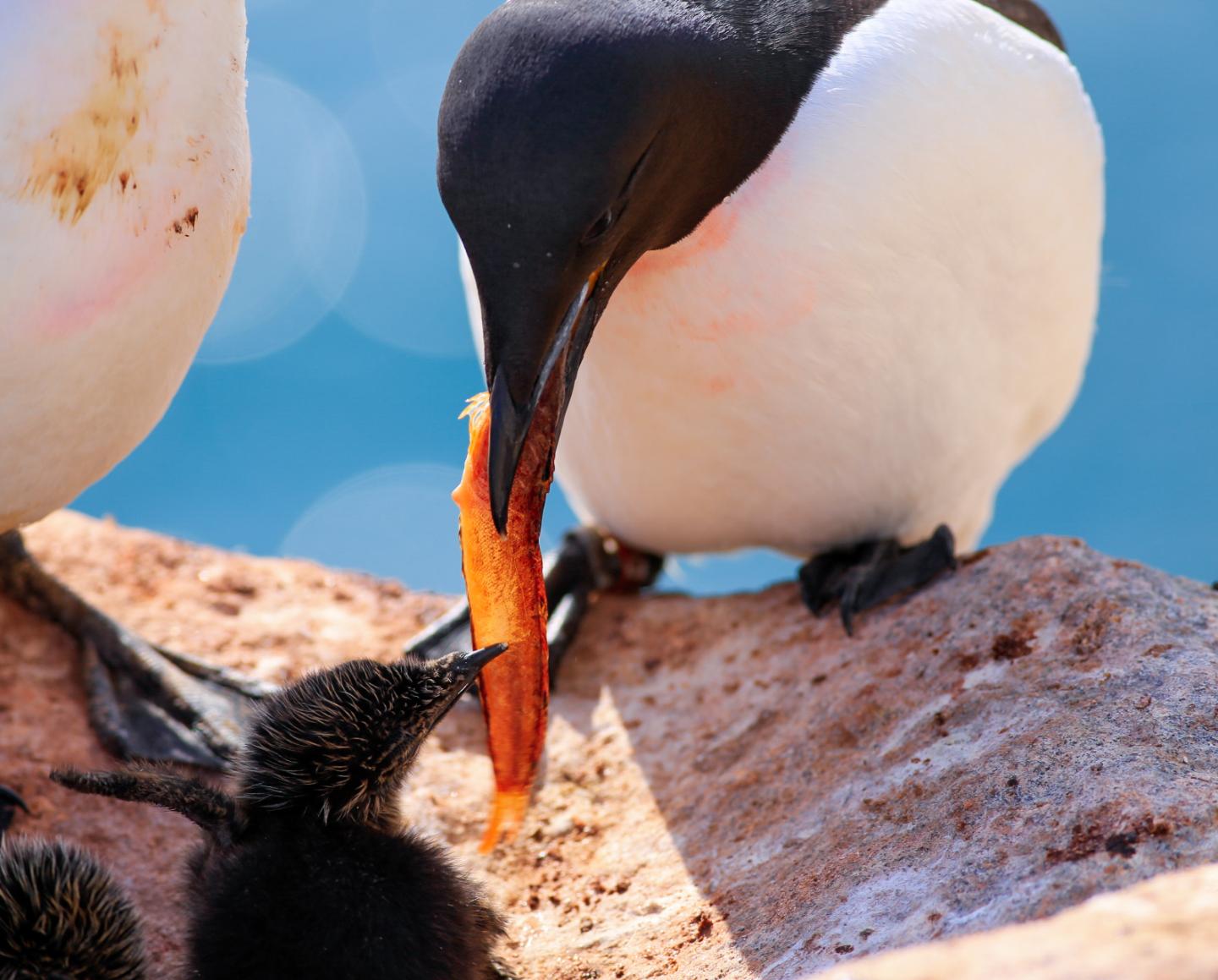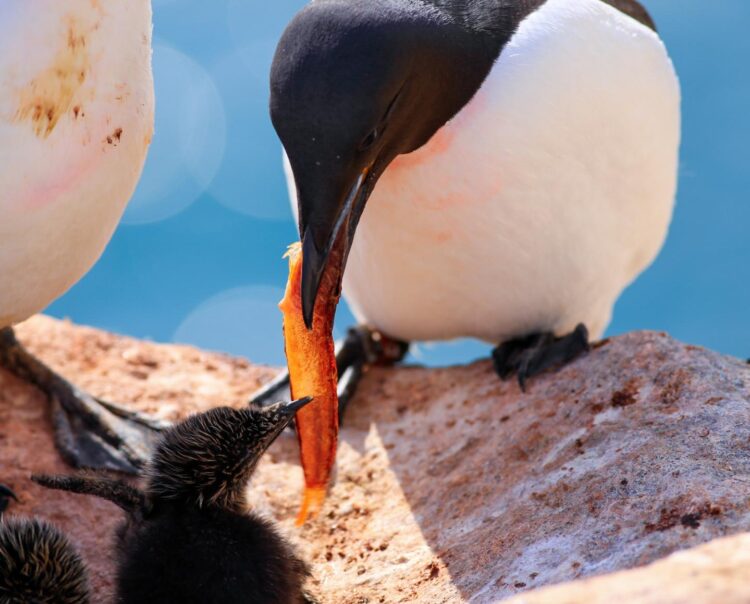Arctic species poorly adapted for coping with rising temperatures as the Arctic continues to warm

Credit: Douglas Noblet
The Arctic is warming at approximately twice the global rate. A new study led by researchers from McGill University finds that cold-adapted Arctic species, like the thick-billed murre, are especially vulnerable to heat stress caused by climate change.
“We discovered that murres have the lowest cooling efficiency ever reported in birds, which means they have an extremely poor ability to dissipate or lose heat,” says lead author Emily Choy, a Postdoctoral Fellow in the Natural Resource Sciences Department at McGill University.
Following reports of the seabirds dying in their nests on sunny days, the researchers trekked the cliffs of Coast Island in northern Hudson Bay to study a colony of 30,000 breeding pairs. They put the birds’ heat tolerance to the test and found that the animals showed signs of stress at temperatures as low as 21C.
Until now few studies have explored the direct effects of warming temperatures on Arctic wildlife. The study, published in Journal of Experimental Biology, is the first to examine heat stress in large Arctic seabirds.
Bigger not always better
By measuring breathing rates and water loss as the murres were subjected to increasing temperatures, the researchers found that larger birds were more sensitive to heat stress than smaller birds.
Weighing up to one kilogram, murres have a very high metabolic rate relative to their size, meaning when they pant or flap their wings to cool off, they expend a very high amount of energy, producing even more heat.
These seabirds nest in dense colonies, often breeding shoulder to shoulder along the narrow ledges of cliffs. Male and female birds take turns nesting on 12-hour shifts. According to the researchers, the thick-billed murres’ limited heat tolerance may explain their mortalities on warm weather days.
“Overheating is an important and understudied effect of climate change on Arctic wildlife,” says Choy. “Murres and potentially other Arctic species are poorly adapted for coping with warming temperatures, which is important as the Arctic continues to warm.”
###
About this study
“Limited heat tolerance in a cold-adapted seabird: implications of a warming Arctic” by Emily Choy, Ryan O’Connor, Grant Gilchrist, Anna Hargreaves, Oliver Love, Francois Vezina, and Kyle Elliott was published in the Journal of Experimental Biology.
DOI: https:/
About McGill University
Founded in 1821, McGill University is home to exceptional students, faculty, and staff from across Canada and around the world. It is consistently ranked as one of the top universities, both nationally and internationally. It is a world-renowned institution of higher learning with research activities spanning two campuses, 11 faculties, 13 professional schools, 300 programs of study and over 40,000 students, including more than 10,200 graduate students.??
McGill’s commitment to sustainability reaches back several decades and spans scales from local to global. The sustainability declarations that we have signed affirm our role in helping to shape a future where people and the planet can flourish.
https:/
Media Contact
Shirley Cardenas
[email protected]
Original Source
https:/
Related Journal Article
http://dx.





